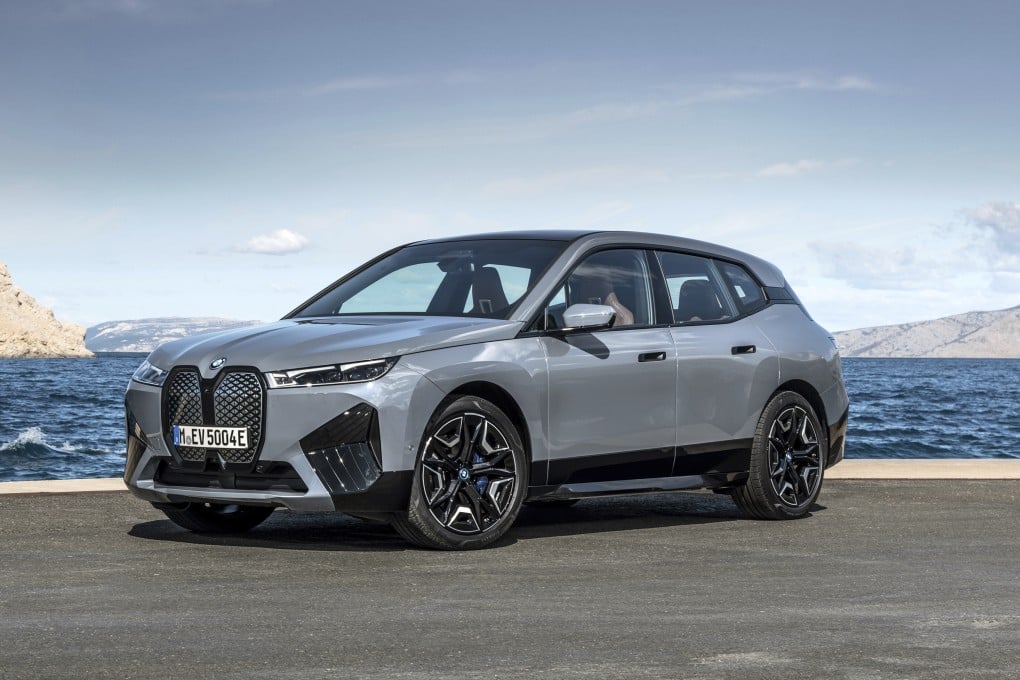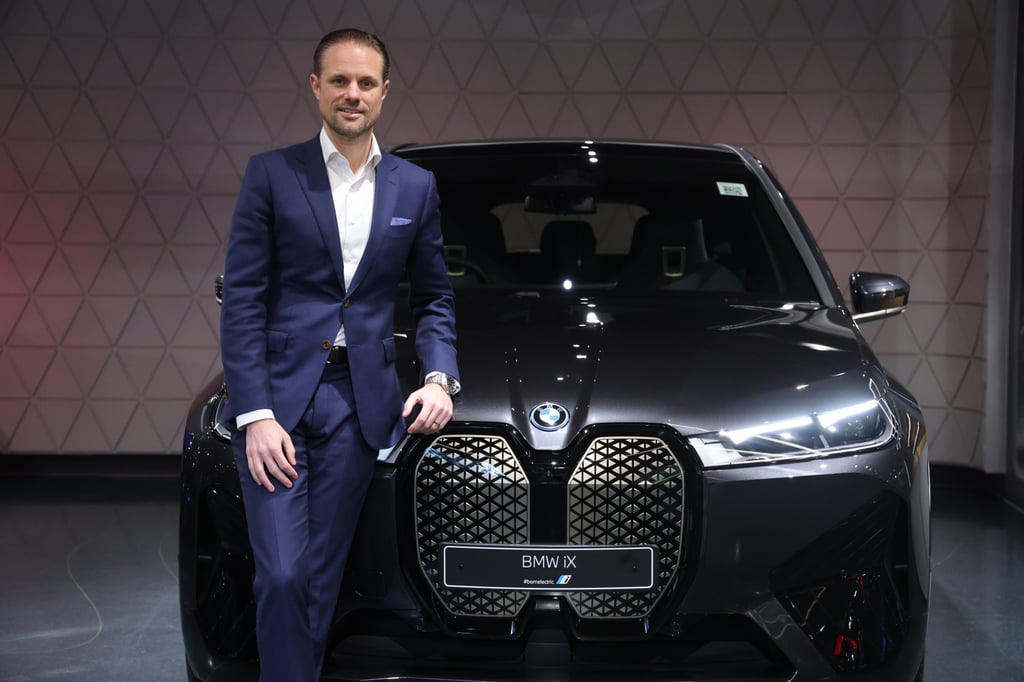Advertisement
In Tesla-dominated Hong Kong, BMW eyes 50 per cent of its sales in the city to come from electric cars by 2024
- The German carmaker plans to launch the iX3 SUV, i7 limousine and iX1 compact SUV in Hong Kong this year
- EVs accounted for 8,454 units or 23 per cent of new car registrations in Hong Kong in the first 11 months of last year
Reading Time:3 minutes
Why you can trust SCMP

BMW will launch at least three new electric car models in Hong Kong this year, as the German firm aims for battery-powered vehicles to account for 50 per cent of its sales in the city by 2024, much earlier than its global goal of 2030.
After launching the iX “sports activity vehicle” and i4 compact sedan in Hong Kong in the last three months, it plans to roll out the iX3 sports utility vehicle, i7 limousine and iX1 compact SUV later this year.
“Within the next few months, we will have fully electric vehicles in each of the main market segments,” said Martijn Oremus, managing director of BMW Hong Kong Services. “Step by step, every year, we will have more electric products coming to the market.”
Advertisement
Despite challenges caused by the Covid-19 pandemic, such as chip shortages and logistics hiccups that have affected the car industry, he said BMW has been clinching deals directly with chip makers besides procuring from its usual sources, expecting supplies to improve over the course of this year.

“I recommend customers to make buying decisions early in order to secure a good production slot,” he said. Deliveries of the iX and i4 in Hong Kong are expected as early as the fourth quarter.
Advertisement
Hong Kong had nearly 25,000 electric cars in October, or 3.8 per cent of the overall total. EVs accounted for 23 per cent of new car registrations in the first 11 months of last year, up from 12 per cent in 2020 and 6 per cent in 2019. Of the 8,454 EVs registered during period, 7,252 were Tesla cars and 16 were BMWs, according to Transport Department data.
Advertisement
Select Voice
Select Speed
1.00x